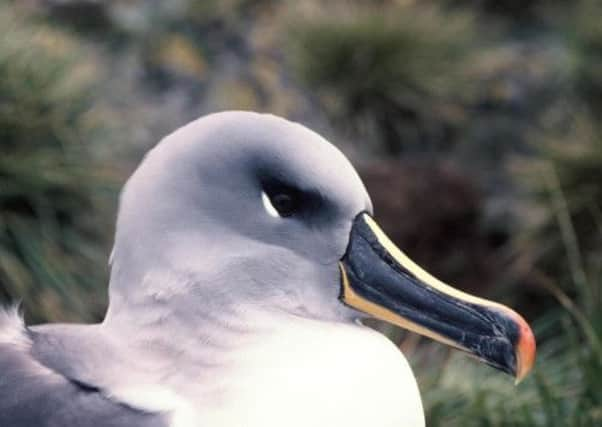Dundee University in ‘Team Rat’ project success


• An animal conservationist at Dundee University has successfully led the latest phase in a project to eradicate rodents from a seabird sanctuary
• South Georgia, a British outpost in the Southern Atlantic, is home to 31 bird species currently threatened by rats and mice
Advertisement
Hide AdAdvertisement
Hide AdThe remote British outpost of South Georgia is a vital breeding ground for 31 bird species ranging from the black browed albatross, a seabird with one of the largest wingspans in the world, to the tiny Wilson’s storm petrel.
But for the last 250 years the island has been overrun by the rodents which first came ashore from whaling ships in the late 18th century.
Professor Tony Martin, head of animal conservation at Dundee University, is leading a four-year project, backed by the South Georgia Heritage Trust, dedicated to removing every single rodent from South Georgia and its outlying islands by the end of 2015.
And today he announced the completion of the second phase of the habitat restoration project by “Team Rat” which began in 2011. Prof Martin headed up a 25-strong international team who thinly spread nearly 200 tonnes of baited pellets from three helicopters across territory infested by the rodent from sea level to mountain-top.
A spokesman for the university explained: “Despite battling the worst weather seen in the rugged, glacial landscape in the sub-Antarctic for a decade, they managed to bait 580 square kilometres over the course of 600 flying hours and more than 1,000 individual flights. This means that 70 per cent of the rat-infested areas of South Georgia are now baited, five times larger than any other rodent eradication area.”
Prof Martin, one of the world’s leading experts in whale and dolphin behaviour, said: “I am delighted that we successfully completed phase two of this internationally important conservation project. We battled against the odds with the weather, our biggest enemy, but through great teamwork and planning we managed to meet our target.
“To clear this magnificent island of rodents accidentally introduced by humans has been an ambition of mine for over a decade and I am thrilled we are well on the way to securing this important seabird habitat for future generations.”
A university spokesman said: “Unwittingly, humans have made South Georgia into a unique ecological experiment, and there is considerable potential for research to measure and model the impact of removing the main introduced stressors of the terrestrial habitat.
Advertisement
Hide AdAdvertisement
Hide Ad“Team Rat team consisted of four pilots, two engineers, three chefs, two doctors and field staff with expertise ranging from GPS and data management, to meteorology, polar logistics and an intimate knowledge of South Georgia and its wildlife. Together, this highly experienced group possessed all the skills and expertise needed to tackle every challenge that the island threw at them.”
He continued: “The final area to be baited – the Northwest Zone – was the largest and most challenging of all. At 1,500 feet, flying without a door so they could clearly see the bait drop below, the pilots endured temperatures of -14C. Conditions were so poor that equipment froze solid, and powdery snow threatened to halt the operation so tantalizingly close to completion.”
The spokesman added: “Monitoring over the last two years has shown no sign of rats in the area baited during Phase 1, which took place in 2011. The trust therefore believes that the trial has been successful in eradicating every rat in the area treated in 2011.
“The SGHT is now fundraising for the final season of work on this ambitious £7.5million project. To date, SGHT and its US counterpart Friends of South Georgia Island (FOSGI) have raised some £5million towards completing the eradication project.
“Over the next 12 months, both organisations will work hard to secure the £2.5million required to complete the project in early 2015, when the remaining 300 rodent-infested square kilometres of South Georgia will be baited. A further £500,000 will be required for monitoring to check that no rats or mice remain on the island.”
Richard Benyon, the UK’s Natural Environment Minister, praised the efforts of the team. He said: “I would like to thank everyone involved in this fantastic project and I am delighted that DEFRA has been able to contribute to its success.
“Eradicating rats on this island will help secure the future of the rare birds that breed here and safeguard populations for future generations.”